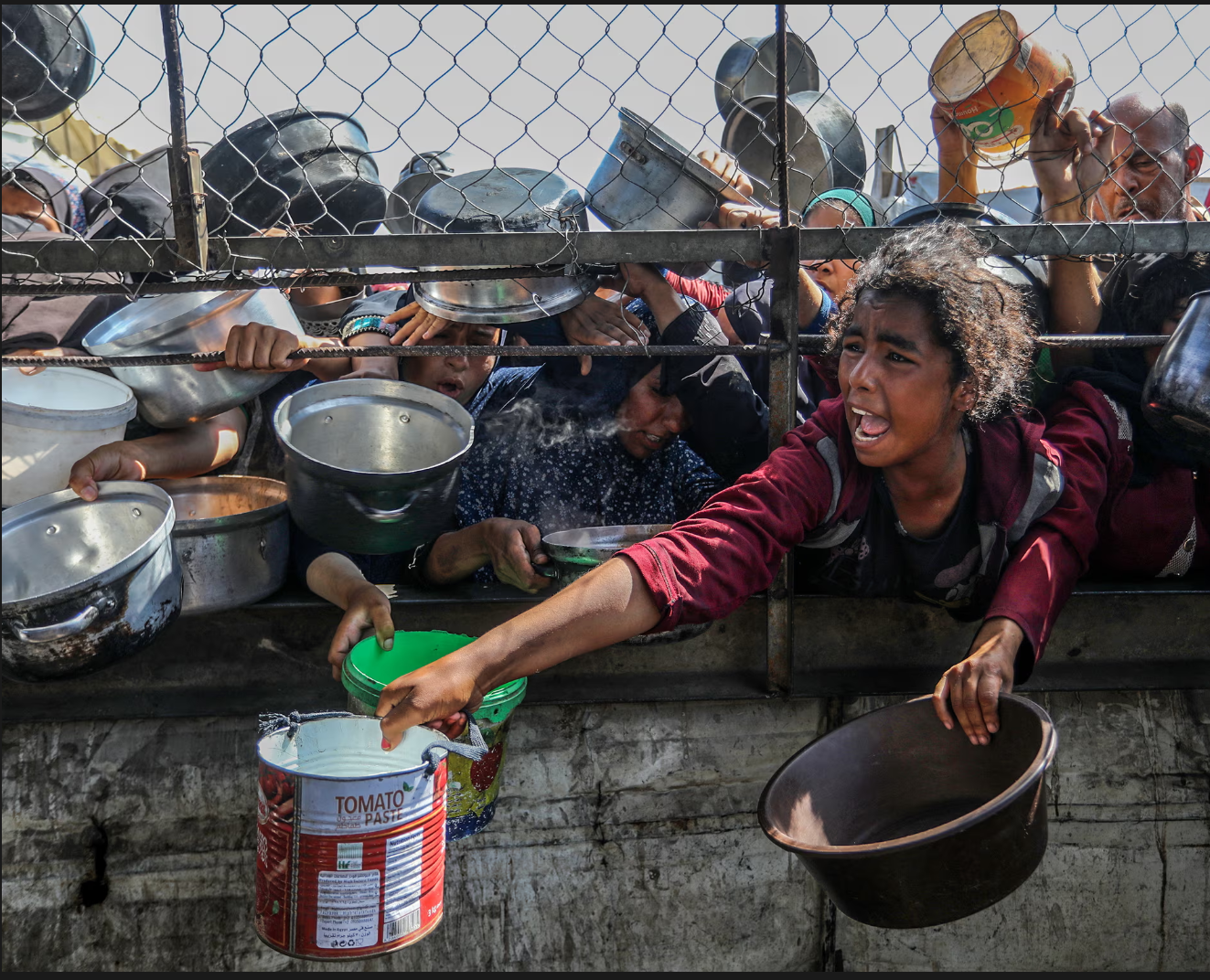- June 11, 2025
Starvation as a Weapon: Israel’s Blockade and the Humanitarian Crisis in Gaza

The humanitarian crisis in Gaza has reached a catastrophic level. International organizations, human rights groups, and United Nations agencies have repeatedly warned of famine, disease, and mass suffering as a result of Israel’s ongoing blockade of the Gaza Strip. The most alarming accusations now suggest that Israel is not merely failing to provide humanitarian relief—but is actively obstructing it, using starvation as a weapon of war.
Since March 2025, the Israeli government has significantly tightened its restrictions on aid into Gaza, citing security concerns and the continued captivity of hostages by Hamas. Yet these justifications have been harshly criticized by aid organizations, which argue that the measures constitute collective punishment of over two million Palestinians—most of whom are civilians, including hundreds of thousands of children.
Aid convoys carrying essential food, water, medical supplies, and fuel have been regularly delayed, denied entry, or redirected through Israeli-controlled channels that drastically limit the amount and pace of delivery. The result has been devastating. According to the United Nations Integrated Food Security Phase Classification (IPC), a great number of Gaza’s population now faces starvation. Images and testimonies emerging from the region reveal families surviving on handfuls of lentils, powdered milk, or stale pasta, while others attempt to bake bread without flour or cook over trash fires due to fuel shortages.
The situation at aid distribution points is equally grim. As desperation grows, stampedes and violence have erupted in crowded queues. In Rafah, a stampede triggered by limited aid deliveries reportedly killed several people. The lack of infrastructure, crowd control, and sufficient supplies has turned what should be lifelines into death traps.
International condemnation has followed. Human Rights Watch has labeled Israel’s actions as a violation of international humanitarian law, stating that the intentional withholding of food and medicine from a civilian population amounts to the use of starvation as a method of warfare. Amnesty International has echoed those claims, and the International Court of Justice has called on Israel to take “immediate and effective” measures to facilitate humanitarian aid. Despite these calls, little has changed on the ground.
In one of the most high-profile attempts to challenge the blockade, a British-flagged humanitarian boat named Madleen attempted to reach Gaza carrying symbolic aid. On board was climate activist Greta Thunberg, alongside other peace and human rights activists. The Israeli navy intercepted the vessel in international waters and detained the crew. Although the aid was later promised to be delivered through Israeli channels, activists claimed the seizure was part of a broader campaign to suppress visibility into the suffering within Gaza and punish those who attempt to break the silence.
Thunberg was deported to Paris shortly after her detention, underscoring the irony that a leading voice against aviation emissions was forced to travel by air after her peaceful protest at sea. The remaining activists who refused deportation remain in custody, awaiting hearings in Israeli courts.
The tragedy unfolding in Gaza is not simply a natural disaster or the collateral damage of conflict—it is, many argue, a policy choice. By severely restricting the flow of humanitarian aid, Israel has drawn sharp criticism for failing to uphold its responsibilities under international law. The blockade is not only choking off supplies but also sending a message: that humanitarian need can be subordinated to military and political strategy.
As the international community looks on, the moral imperative becomes clear. Preventing famine and protecting civilians are not optional in wartime—they are obligations. Every day that aid is blocked, more lives are lost. The question now is whether the world will act before it is too late.

